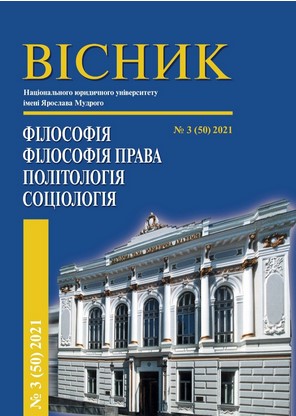ВІТЧИЗНЯНА СОЦІОЛОГІЯ ОСВІТИ: ТЕОРЕТИКО-МЕТОДОЛОГІЧНІ ТА ІСТОРИЧНІ ЗАСАДИ
DOMESTIC SOCIOLOGY OF EDUCATION: THEORETICAL AND METHODOLOGICAL AND HISTORICAL FOUNDATIONS
Author(s): V. Ye. Pilipenko, O. V. VolyanskaSubject(s): History of Education, Health and medicine and law, Sociology of Education, Pedagogy
Published by: Національний юридичний університет імені Ярослава Мудрого
Keywords: sociology of education; historical bases; methodological principles; social functions;
Summary/Abstract: Sociology of education belongs to those disciplines that were formed and institutionalized later then the analysis of social structure, social mobility, social organizations, etc. However, there are highly different theories, existing in it, of the image of the object and norms of its research creation. It is not always are suitable those methods that made a good showing of themselves in other branches, namely, quantitative analysis methods. The «boundary» problems of the theoretical differentiation with the pedagogy, economics of education and demography has not been solved yet. This also concerns the formation and development of sociology of education and in Post-Soviet Ukraine. In essence, its formation begins only in the late 1960s, when philosophers, economists, lawyers, and teachers (based on the principle of «transparency» of interdisciplinary boundaries) began to carry out large scale researches of the problems of the transition from education to work and professional self-determination and careers, ignoring the taboo of the Central Committee of the (Communist Party of the Soviet Union (CPSU). Currently, the education system is becoming a key point in strategies on ensuring inheritance in the environment of the highest strata, monopolizing by them their positions in society. In addition, with the development of sociology of education, its tasks are complicating. Moreover, helping the latter to find its true role – one of the most important challenges faced by scholars – those, working in this field of knowledge. This concerns both the goals and methods of both qualitative and quantitative aspects of the case. At the same time, it is impossible not take into account and that fact that every stage in the development of society requires a specific distribution of the population by the level of education. The institution of education by itself as if is «broken down» into an open function (task of mastering knowledge, skills and specialization) and a latent function (granting a person a certain status, recalling of social inequality).It is the second function is, above all, the sphere of application of the forces of the specialists-sociologists.
Journal: Вісник НЮУ імені Ярослава Мудрого. Серія: Філософія, філософія права, політологія, соціологія
- Issue Year: 35/2017
- Issue No: 4
- Page Range: 81-105
- Page Count: 25
- Language: Ukrainian

